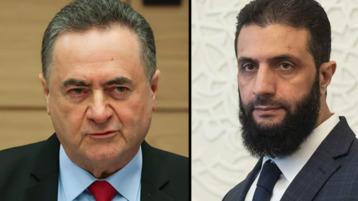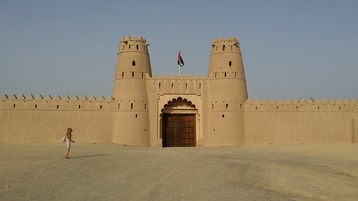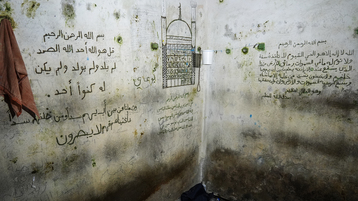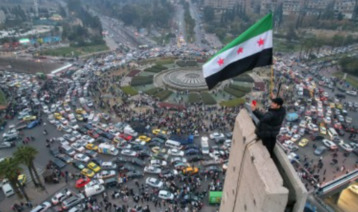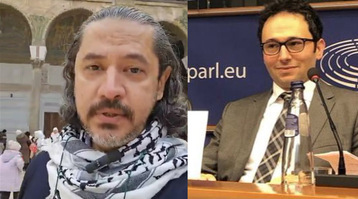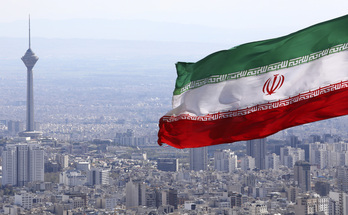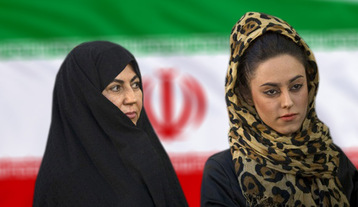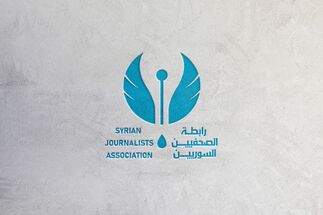-
Dynamics of Iran's Continuing Asymmetric Warfare
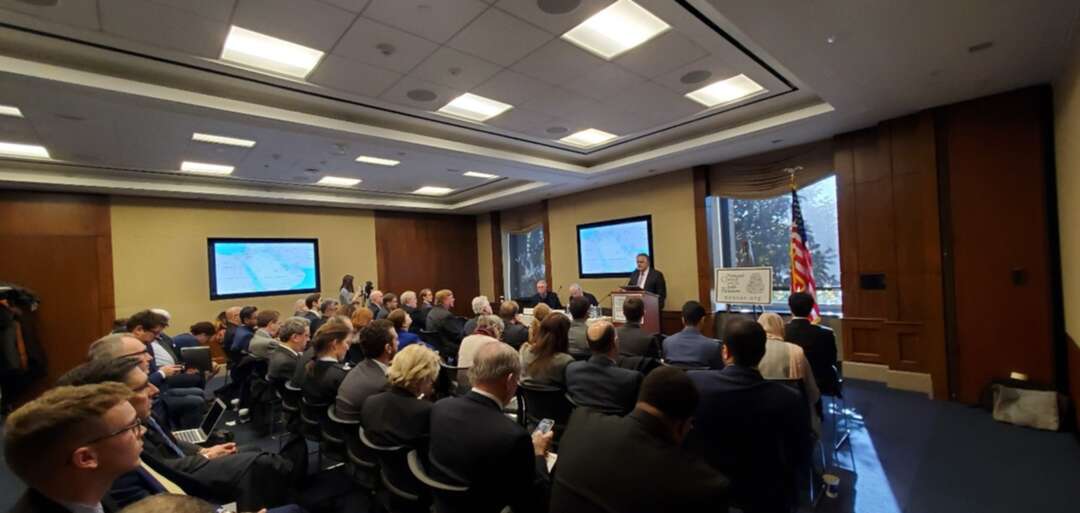
On Thursday, January 09, 2020 – The National Council on U.S-Arab Relations hosted an event in light of the latest escalations between U.S. and Iran in Rayburn Building in the U.S. House of Representatives.
The speakers were Dr. John Duke Anthony, the founder and CEO of the National Council on U.S.-Arab Relations, Dr. Anthony H. Cordesman, the Arleigh A. Burke Chair in Strategy at the Center for Strategic and International Studies (CSIS), Mr. David Des Roches an Associate Professor at the National Defense University’s Near East South Asia Center for Security Studies and Dr. Thomas Mattair the executive Director of the Middle East Policy Council.
The event discussed dynamics of Iran’s continuing asymmetric warfare and the implications for the United States in the Region. Speakers probed the events of the past week and the future as well as the importance of the US military presence in Iraq. Other topics mentioned were defense budgets of GCC nations spent, military tactics and strategies of Iran.
Dr. John Duke Anthony explained the geopolitics of the Middle East and GCC. He said, “Here we are in a region of 22 Arab countries, one Iran, one Israel and one Turkey, these major factors, construe major forces… The region is one of two kinds of oil, Turmoil, and the other kind, which both complicate the area and make it far more important than what otherwise would be the case.”
Mr. David Des Roches who was connected by Skype from Saudi Arabia spoke to the audience and stated, “When you look at how Iran fights, the first thing that is important is that Iran doesn’t seem to dominate the area. I’m sure they’d like too but it realizes that they don’t have the ability to do it but it can achieve strategic aims by disrupting things.”
Using a slideshow, Mr. Des Roches explained how Iran is using proxy attacks, disrupting shipping and taking hostages.
He asked to not be quoted as a government expert.
Dr. Anthony H. Cordesman was the third speaker of the event. His speech was focused on two major issues. The basic changes in the nature warfare, not only in Iran but also in the gulf, Middle East and a good part of the world; and the extent which the United States will maintain its presence and its commitments in the Gulf and the region.
Dr. Cordesman’s presentation was majorly pointing out to the reasons why the U.S. should stay in the Middle East.
Dr. Thomas Mattair highlighted the need of a coherent policy for Iran. He indicated, “We need a coherent strategy. We don’t have one. I agree with Tony that the Joint Comprehensive Plan of Action was a good agreement and I do think it was a mistake to leave…” Dr. Mattair added, “I’m struck by something that David said which is that Iran likes to operate on a level that is below the level that is going to get loud attention here and that means that we have not responded very effectively to the things that they have done.”
In December 27, 2019, Kataib Hezbollah fired 30 rockets at an Iraqi base that hosted U.S. forces, killing an American contractor. U.S. reacted by attacking Kataib Hezbollah’s bases in the Syria- Iraq border. On the New Year’s Eve Kataib Hezbollah and Popular Mobilization Forces (PMF), among many other pro Iran militias, attacked the U.S. Embassy, destroyed some parts of the entrance and put the embassy under siege, while Iraqi security forces did nothing to prevent them entering the highly secured Green Zone in Baghdad.
On January 1, 2020, the U.S. Forces eliminated Ghasem Soleimani, the head of the Quds Force accompanied by Abu Mahdi Al Mohandes, the head of the Popular Mobilization Forces (PMF) at his arrival close to the Baghdad International Airport which sparked further escalations between U.S. and Iran.
Iranian leaders promised a harsh revenge and officially launched missiles from Iran towards Eyn Al Assad camp in Iraq. The attack didn’t have any casualties which was widely translated as a sign of de-escalation.
"Iran appears to be standing down, which is a good thing for all parties concerned and a very good thing for the world," Trump said on Wednesday after the missile attack.
By : ALI REZA
You May Also Like
Popular Posts
Caricature
BENEFIT AGM approves 10%...
- March 27, 2025
BENEFIT, the Kingdom’s innovator and leading company in Fintech and electronic financial transactions service, held its Annual General Meeting (AGM) at the company’s headquarters in the Seef District.
During the meeting, shareholders approved all items listed on the agenda, including the ratification of the minutes of the previous AGM held on 26 March 2024. The session reviewed and approved the Board’s Annual Report on the company’s activities and financial performance for the fiscal year ended 31 December 2024, and the shareholders expressed their satisfaction with the company’s operational and financial results during the reporting period.
The meeting also reviewed the Independent External Auditor’s Report on the company’s consolidated financial statements for the year ended 31 December 2024. Subsequently, the shareholders approved the audited financial statements for the fiscal year. Based on the Board’s recommendation, the shareholders approved the distribution of a cash dividend equivalent to 10% of the paid-up share capital.
Furthermore, the shareholders endorsed the allocation of a total amount of BD 172,500 as remuneration to the members of the Board for the year ended 31 December 2024, subject to prior clearance by related authorities.
The extension of the current composition of the Board was approved, which includes ten members and one CBB observer, for a further six-month term, expiring in September 2025, pending no objection from the CBB.
The meeting reviewed and approved the Corporate Governance Report for 2024, which affirmed the company’s full compliance with the corporate governance directives issued by the CBB and other applicable regulatory frameworks. The AGM absolved the Board Members of liability for any of their actions during the year ending on 31st December 2024, in accordance with the Commercial Companies Law.
In alignment with regulatory requirements, the session approved the reappointment of Ernst & Young (EY) as the company’s External Auditors for the fiscal year 2025, covering both the parent company and its subsidiaries—Sinnad and Bahrain FinTech Bay. The Board was authorised to determine the external auditors’ professional fees, subject to approval from the CBB, and the meeting concluded with a discussion of any additional issues as per Article (207) of the Commercial Companies Law.
Speaking on the company’s performance, Mr. Mohamed Al Bastaki, Chairman BENEFIT , stated: “In terms of the financial results for 2024, I am pleased to say that the year gone by has also been proved to be a success in delivering tangible results. Growth rate for 2024 was 19 per cent. Revenue for the year was BD 17 M (US$ 45.3 Million) and net profit was 2 Million ($ 5.3 Million).
Mr. Al Bastaki also announced that the Board had formally adopted a new three-year strategic roadmap to commence in 2025. The strategy encompasses a phased international expansion, optimisation of internal operations, enhanced revenue diversification, long-term sustainability initiatives, and the advancement of innovation and digital transformation initiatives across all service lines.
“I extend my sincere appreciation to the CBB for its continued support of BENEFIT and its pivotal role in fostering a stable and progressive regulatory environment for the Kingdom’s banking and financial sector—an environment that has significantly reinforced Bahrain’s standing as a leading financial hub in the region,” said Mr. Al Bastaki. “I would also like to thank our partner banks and valued customers for their trust, and our shareholders for their ongoing encouragement. The achievements of 2024 set a strong precedent, and I am confident they will serve as a foundation for yet another successful and impactful year ahead.”
Chief Executive of BENEFIT; Mr. Abdulwahed AlJanahi commented, “The year 2024 represented another pivotal chapter in BENEFIT ’s evolution. We achieved substantial progress in advancing our digital strategy across multiple sectors, while reinforcing our long-term commitment to the development of Bahrain’s financial services and payments landscape. Throughout the year, we remained firmly aligned with our objective of delivering measurable value to our shareholders, strategic partners, and customers. At the same time, we continued to play an active role in enabling Bahrain’s digital economy by introducing innovative solutions and service enhancements that directly address market needs and future opportunities.”
Mr. AlJanahi affirmed that BENEFIT has successfully developed a robust and well-integrated payment network that connects individuals and businesses across Bahrain, accelerating the adoption of emerging technologies in the banking and financial services sector and reinforcing Bahrain’s position as a growing fintech hub, and added, “Our achievements of the past year reflect a long-term vision to establish a resilient electronic payment infrastructure that supports the Kingdom’s digital economy. Key developments in 2024 included the implementation of central authentication for open banking via BENEFIT Pay”
Mr. AlJanahi concluded by thanking the Board for its strategic direction, the company’s staff for their continued dedication, and the Central Bank of Bahrain, member banks, and shareholders for their valuable partnership and confidence in the company’s long-term vision.
opinion
Report
ads
Newsletter
Subscribe to our mailing list to get the new updates!

